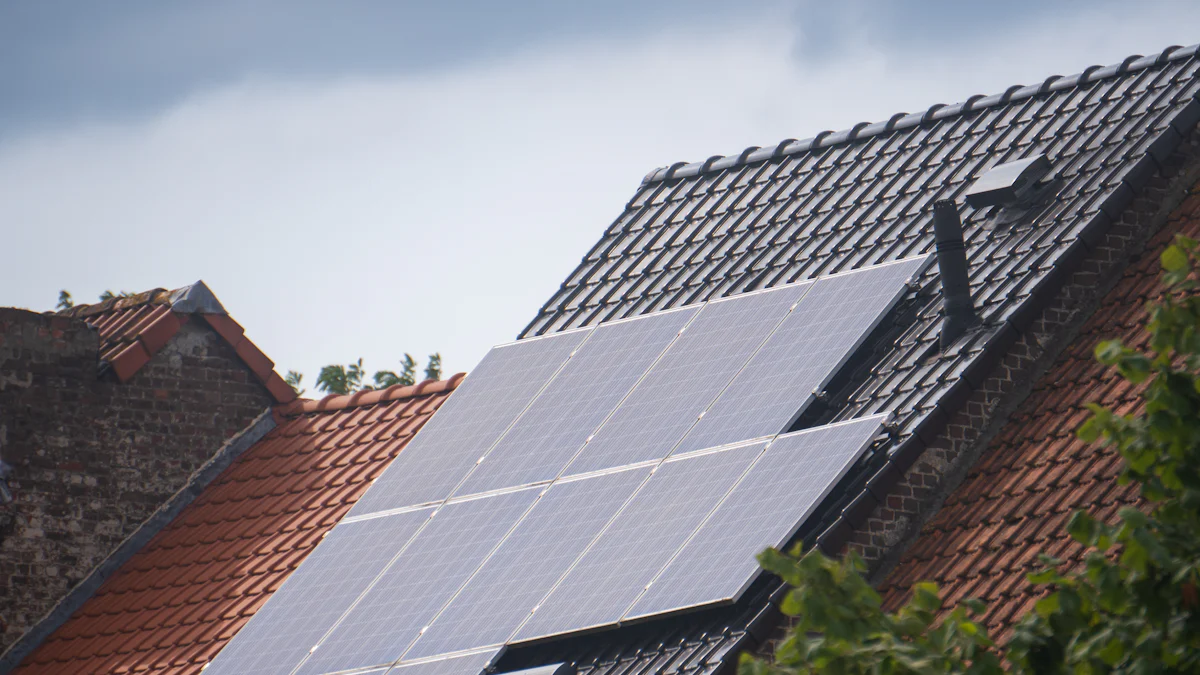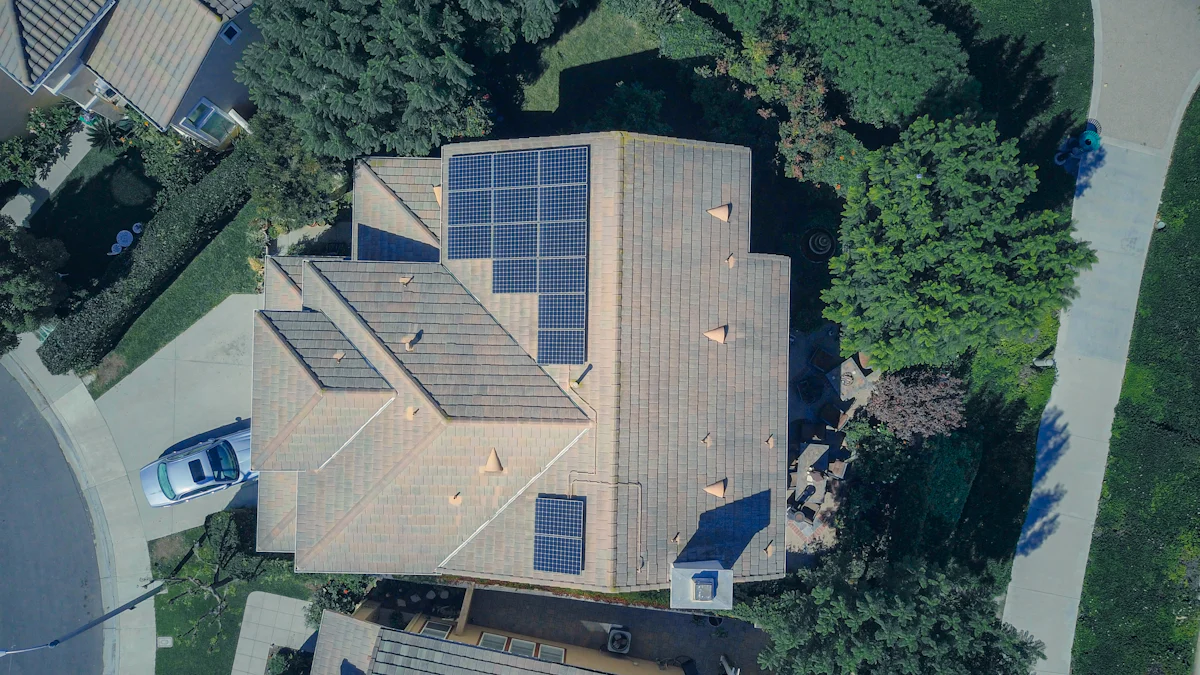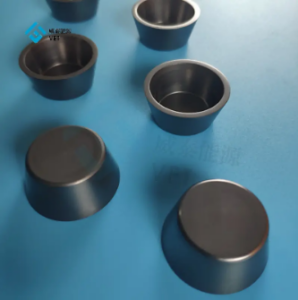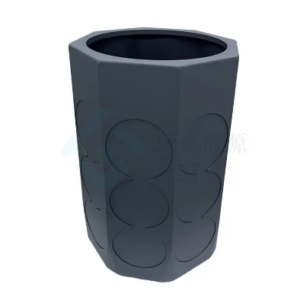
Can a hydrogen generator truly power your home? The answer lies in its ability to integrate advanced technologies like fuel cells and renewable energy systems. A hydrogen generator produces clean energy by splitting water into hydrogen and oxygen, often using a PEM electrolyzer. This hydrogen can then be stored and converted into electricity to meet your household needs. With innovations in hydrogen production and storage, this technology offers a sustainable alternative to traditional energy sources, paving the way for a greener future.
Key Takeaways
- Hydrogen generators produce clean energy by splitting water into hydrogen and oxygen, making them a sustainable alternative to traditional energy sources.
- Integrating renewable energy sources like solar panels with hydrogen systems enhances energy independence and reduces reliance on external power grids.
- Fuel cells convert hydrogen into electricity efficiently and emission-free, providing a reliable power source for homes.
- Hydrogen storage systems ensure a steady energy supply, allowing homes to maintain power even when renewable sources are unavailable.
- While initial costs for hydrogen systems can be high, long-term savings on energy bills and minimal maintenance make them a cost-effective choice.
- Advancements in hydrogen technology, such as AEM electrolyzers and modular fuel cells, are making these systems more accessible and efficient for homeowners.
- Adopting hydrogen generators contributes to a cleaner environment by reducing carbon emissions and promoting sustainable energy practices.
How Does a Hydrogen Generator Work in a Home Energy System?

The Basics of Hydrogen Generation
A hydrogen generator creates hydrogen gas, which serves as a clean energy source. You might wonder how this process begins. It typically starts with electrolysis, a method that splits water into hydrogen and oxygen using electricity. This electricity often comes from renewable sources like solar panels or wind turbines, ensuring the process remains environmentally friendly.
Another method involves chemical reactions, where substances like natural gas interact with steam to produce hydrogen. However, electrolysis is the preferred choice for residential systems due to its sustainability. Recent advancements in water-splitting techniques have made this process more efficient and accessible for home use. By generating hydrogen on-site, you can reduce reliance on external energy grids and embrace a greener lifestyle.
Converting Hydrogen into Usable Energy
Once hydrogen is generated, the next step involves converting it into electricity. This is where fuel cells come into play. A fuel cell combines hydrogen with oxygen from the air to produce electricity, heat, and water. This process is not only efficient but also emission-free, making it ideal for powering homes.
For example, a single fuel cell can power a small home, while larger homes may require multiple fuel cells. Modular systems, like the Oncore Energy MicroGrid, allow you to scale up based on your energy needs. These systems ensure that the electricity produced matches the voltage and current required by your household appliances.
Hydrogen storage also plays a crucial role. Excess hydrogen can be stored in tanks for later use, ensuring a steady energy supply even when renewable sources like solar or wind are unavailable. This combination of generation, storage, and conversion makes hydrogen a reliable and sustainable option for home energy systems.
Components Required to Power a House with a Hydrogen Generator
To power your home with a hydrogen generator, you need a combination of essential components. These elements work together to ensure efficient energy production, storage, and usage. Below, we explore the key components required for a fully functional hydrogen-powered home.
Solar Panels or Renewable Energy Sources
Solar panels or other renewable energy sources play a crucial role in generating electricity for hydrogen production. By using solar energy, you can power the electrolyzer, which splits water into hydrogen and oxygen. This process ensures that your hydrogen generator operates sustainably and reduces reliance on fossil fuels.
For example, the H2 Hydrogen Home project by SoCalGas demonstrates how solar panels integrate seamlessly with hydrogen systems. The solar panels provide clean electricity to produce hydrogen, creating a self-sustaining energy cycle. If solar panels are not an option, wind turbines or other renewable sources can serve as alternatives.
By incorporating renewable energy, you not only reduce your carbon footprint but also lower long-term energy costs. This setup ensures that your hydrogen generator remains environmentally friendly and cost-effective.
Hydrogen Storage Systems
Hydrogen storage systems are essential for maintaining a steady energy supply. These systems store excess hydrogen produced during peak renewable energy generation. When energy demand increases or renewable sources are unavailable, the stored hydrogen can be used to generate electricity.
Modern hydrogen storage solutions, such as pressurized tanks, are designed to safely contain large volumes of hydrogen. For instance, the world’s first solar-hydrogen on/off-grid residence uses advanced storage systems to ensure year-round energy availability. These systems allow you to store hydrogen efficiently, making it possible to power your home even during cloudy days or at night.
Reliable storage is critical for achieving energy independence. It ensures that your home remains powered regardless of external conditions, providing peace of mind and uninterrupted energy access.
Batteries for Energy Backup
Batteries act as a complementary backup system in hydrogen-powered homes. While hydrogen storage systems handle long-term energy needs, batteries provide immediate energy during short-term fluctuations. They store electricity generated by renewable sources or fuel cells, ensuring a seamless energy supply.
For example, a plant combining photovoltaic (PV) panels and hydrogen uses batteries to manage seasonal energy storage. This approach balances energy flow and optimizes the system’s efficiency. By including batteries in your setup, you can handle sudden spikes in energy demand or temporary interruptions in hydrogen production.
Batteries enhance the reliability of your hydrogen generator system. They ensure that your household appliances and devices continue to function without interruptions, even during unexpected energy shortages.
Fuel Cells for Energy Conversion
Fuel cells play a pivotal role in converting hydrogen into electricity for your home. These devices operate by combining hydrogen from your hydrogen generator with oxygen from the air. This chemical reaction produces electricity, water, and heat. The process is highly efficient and emits no harmful pollutants, making it an environmentally friendly choice for residential energy needs.
You might wonder how fuel cells differ from traditional power sources. Unlike combustion engines, which burn fuel to generate energy, fuel cells rely on an electrochemical process. This method ensures minimal energy loss and provides a steady supply of electricity. For instance, a single fuel cell can power a small home, while larger homes may require multiple units. Modular systems, such as the Oncore Energy MicroGrid, allow you to scale up your setup based on your household’s energy demands.
Fuel cells also offer versatility. They can operate independently or integrate seamlessly with other renewable energy systems like solar panels. This flexibility ensures that your home remains powered even during periods of low sunlight or high energy consumption. Additionally, the heat generated by fuel cells can be repurposed for heating your home or water, further enhancing their efficiency.
To maximize the benefits of fuel cells, proper maintenance is essential. Regularly checking the system ensures optimal performance and longevity. With advancements in technology, modern fuel cells are becoming more durable and cost-effective, making them a practical solution for powering homes sustainably.
Benefits of Using a Hydrogen Generator to Power a House
Energy Independence
A hydrogen generator offers you the opportunity to achieve energy independence. By producing hydrogen on-site, you reduce reliance on external energy suppliers and traditional power grids. This independence ensures that your home remains powered even during outages or disruptions in the grid. For instance, if you live in an area prone to natural disasters or frequent blackouts, a hydrogen-powered system can provide a reliable energy source.
On-site hydrogen production also allows you to control your energy supply. Using renewable sources like solar panels to generate electricity for electrolysis ensures a self-sustaining cycle. This setup not only enhances your energy security but also aligns with a more resilient and sustainable lifestyle. You gain the freedom to manage your energy needs without depending on fluctuating utility prices or external factors.
Environmental Advantages
Switching to a hydrogen generator significantly reduces your environmental footprint. Hydrogen is a clean energy source that produces no harmful emissions when used in fuel cells. Unlike fossil fuels, which release carbon dioxide and other pollutants, hydrogen energy contributes to a healthier planet. By adopting this technology, you actively participate in combating climate change and reducing air pollution.
The production process can also be environmentally friendly. When paired with renewable energy sources like solar or wind, hydrogen generation becomes a zero-emission process. For example, projects like the H2 Hydrogen Home demonstrate how integrating solar panels with hydrogen systems creates a closed-loop, eco-friendly energy solution. This approach ensures that your energy consumption aligns with global sustainability goals.
Additionally, the byproducts of hydrogen fuel cells—water and heat—are non-polluting. You can even repurpose the heat for household heating, further enhancing the system’s efficiency. By choosing hydrogen, you contribute to a cleaner environment while enjoying the benefits of a sustainable energy source.
Long-Term Cost Savings
Although the initial investment in a hydrogen generator system may seem high, the long-term financial benefits outweigh the upfront costs. Once installed, the system reduces your monthly energy bills by utilizing renewable energy and on-site hydrogen production. Over time, these savings accumulate, making the system a cost-effective choice for powering your home.
Hydrogen systems also require minimal maintenance compared to traditional energy sources. Fuel cells, for instance, have fewer moving parts, which reduces wear and tear. This durability translates into lower maintenance costs and a longer lifespan for your energy system. Modular designs, like the Oncore Energy MicroGrid, allow you to scale your setup as needed, ensuring that you only invest in what your household requires.
Furthermore, as hydrogen technology advances, production and storage costs continue to decrease. Governments and organizations worldwide are investing in hydrogen infrastructure, driving innovation and affordability. By adopting a hydrogen generator now, you position yourself to benefit from these advancements while enjoying immediate savings on energy expenses.
Challenges and Limitations of Hydrogen Generators for Homes
High Initial Costs
Hydrogen generators require a significant upfront investment. The cost of installing a complete system, including fuel cells, hydrogen storage tanks, and renewable energy sources like solar panels, can be overwhelming for many homeowners. You may find that the price of these components, combined with installation fees, makes hydrogen systems less accessible compared to traditional energy solutions.
For example, while advancements in hydrogen production and storage technologies are driving costs down, they still lag behind the affordability of solar or wind energy systems. According to studies, hydrogen generators face stiff competition from other renewable technologies, which often have lower initial costs and quicker return on investment. If you’re considering this option, it’s essential to weigh the long-term savings against the upfront expenses.
Energy Efficiency Concerns
Hydrogen generators, while innovative, face challenges in energy efficiency. The process of producing hydrogen through electrolysis consumes a considerable amount of electricity. If you rely on non-renewable energy sources for this process, the overall efficiency of the system decreases. This inefficiency can make hydrogen less appealing compared to other renewable energy options.
You might wonder how this impacts your home energy system. For instance, converting hydrogen into electricity through fuel cells involves energy losses at each stage—generation, storage, and conversion. These losses can reduce the overall output, meaning you may need more energy input to meet your household needs. Despite ongoing advancements in fuel cell technology, achieving optimal efficiency remains a hurdle for widespread adoption.
Scalability and Practicality
Scaling hydrogen systems to meet the energy demands of larger homes or communities presents another challenge. While modular systems like the Oncore Energy MicroGrid allow for expansion, the practicality of scaling up depends on space availability, storage capacity, and budget. If you live in a densely populated area or have limited outdoor space, accommodating the necessary components can become problematic.
Additionally, hydrogen storage requires specialized tanks that can safely contain the gas under high pressure. These tanks take up significant space and may not be feasible for smaller properties. Portable hydrogen generators, often used in off-grid or emergency scenarios, highlight the potential for compact solutions. However, adapting these systems for full-scale residential use still requires further innovation.
“Hydrogen generators are increasingly adopted as clean energy alternatives,” notes Global Market Insights. Yet, their practicality for everyday residential use depends on overcoming these scalability and space constraints.
Real-World Applications and Case Studies

Examples of Homes Powered by Hydrogen Generators
Hydrogen-powered homes are no longer just a concept; they are becoming a reality in various parts of the world. These homes showcase how hydrogen technology can provide clean, reliable energy for residential use.
One notable example is the Hydrogen House Project in Pennington, New Jersey. This project created the world’s first fully-permitted solar-hydrogen on/off-grid residence. The home uses solar panels to generate electricity, which powers an electrolyzer to produce hydrogen. The hydrogen is then stored and converted back into electricity using fuel cells. This setup allows the house to operate independently from the grid, offering a sustainable and self-sufficient energy solution.
Another groundbreaking initiative is the H2 Hydrogen Home Project by SoCalGas in California. This home demonstrates how renewable energy can integrate seamlessly with hydrogen systems. The microgrid includes solar panels, energy storage, an electrolyzer, and a hydrogen fuel cell. Together, these components create a closed-loop system that produces carbon-free hydrogen gas. This project highlights the potential of hydrogen to power homes while reducing greenhouse gas emissions.
These examples prove that hydrogen generators can work effectively in real-world settings. They also show how combining hydrogen with renewable energy sources can create a sustainable and resilient energy system for your home.
Role of Companies Like Ningbo VET Energy Technology Co.
Innovative companies play a crucial role in advancing hydrogen technology for residential use. Ningbo VET Energy Technology Co. stands out as a leader in this field. The company focuses on developing cutting-edge hydrogen fuel cells and energy solutions designed for homes and businesses.
Ningbo VET Energy Technology Co. emphasizes modular systems that allow you to scale your energy setup based on your needs. For instance, their hydrogen fuel cells can power small homes with a single unit or larger homes by combining multiple units. This flexibility ensures that their solutions cater to a wide range of energy demands.
The company also prioritizes safety and efficiency. Their advanced fuel cell designs minimize energy loss during conversion, ensuring that you get the most out of your hydrogen generator. Additionally, they invest in research and development to make hydrogen systems more affordable and accessible for homeowners.
By collaborating with industry leaders and participating in global hydrogen initiatives, Ningbo VET Energy Technology Co. contributes to the growing adoption of hydrogen as a residential energy source. Their efforts make it easier for you to transition to a cleaner, more sustainable energy system.
Future of Hydrogen Generators in Residential Energy
Advances in Technology
The future of hydrogen generators for residential energy looks promising, thanks to rapid advancements in technology. Researchers have developed innovative methods to make hydrogen generation safer, more efficient, and cost-effective. For example, the introduction of AEM electrolyzers has revolutionized home hydrogen production. These systems operate at low temperatures and pressures, reducing operational costs and making them more accessible for homeowners like you.
Fuel cell technology has also seen significant improvements. Modern fuel cells now offer higher efficiency and durability, ensuring a longer lifespan for your energy system. Companies are focusing on modular designs, allowing you to scale your setup based on your household’s energy needs. This flexibility ensures that hydrogen systems can adapt to various home sizes and energy demands.
Another exciting development is the integration of smart technology. Advanced monitoring systems now allow you to track hydrogen production, storage, and usage in real time. These tools help optimize energy efficiency and ensure that your system operates at peak performance. With these innovations, hydrogen generators are becoming a practical and reliable option for powering homes.
Policy and Market Trends
Government policies and market trends play a crucial role in shaping the adoption of hydrogen generators for residential use. Many countries are investing heavily in hydrogen infrastructure as part of their commitment to reducing carbon emissions. For instance, subsidies and tax incentives for renewable energy systems make it easier for you to afford a hydrogen generator.
The global energy market is also shifting toward cleaner alternatives. Hydrogen is gaining recognition as a renewable and sustainable solution to the energy crisis. Reports highlight its potential to address growing energy demands while minimizing environmental impact. As a result, more companies are entering the hydrogen market, driving competition and innovation. This increased competition is expected to lower costs, making hydrogen systems more affordable for homeowners.
Additionally, collaborations between governments, research institutions, and private companies are accelerating the development of hydrogen technologies. Initiatives like the Hydrogen House Project demonstrate how public and private sectors can work together to create sustainable energy solutions. These efforts ensure that hydrogen remains a viable option for residential energy in the years to come.
“Hydrogen gas is considered a renewable and clean solution for addressing the global energy crisis,” according to recent studies. This growing focus on hydrogen underscores its importance in the transition to a greener future.
By staying informed about these advancements and trends, you can make educated decisions about adopting hydrogen technology for your home. The combination of technological innovation and supportive policies ensures a bright future for hydrogen-powered residential energy systems.
A hydrogen generator can power your home, offering a clean and renewable energy solution. By integrating advanced technologies like AEM electrolyzers and fuel cells, you gain access to a sustainable energy source that reduces your carbon footprint. This system promotes energy independence, allowing you to produce and store energy on-site. Companies like Ningbo VET Energy Technology Co. are leading the way in making these systems more accessible and efficient. While initial investments may seem high, the long-term benefits of cost savings and environmental sustainability make hydrogen generators a promising choice for residential energy.
FAQ
Why should you consider using a hydrogen generator?
A hydrogen generator offers several advantages over traditional energy sources. It provides a consistent supply of hydrogen gas with high purity, ensuring reliable performance for your energy needs. Unlike high-pressure cylinders, a hydrogen generator eliminates the risk of running out of gas unexpectedly. It produces hydrogen on demand, giving you a continuous and convenient energy source. Additionally, it reduces your carbon footprint by eliminating the need for transportation of gas cylinders, making it an environmentally friendly choice.
Is it safe to use a hydrogen generator at home?
Yes, hydrogen generators are designed with safety as a top priority. Modern systems include advanced safety features such as pressure regulators, leak detection sensors, and automatic shut-off mechanisms. These features ensure that the generator operates securely and efficiently. By following the manufacturer’s guidelines and conducting regular maintenance, you can safely use a hydrogen generator in your home.
How difficult is it to install a hydrogen generator?
Installing a hydrogen generator is straightforward when you follow the provided instructions. Most systems come with user-friendly installation guides and require minimal technical expertise. However, hiring a professional installer ensures proper setup and optimal performance. This step also guarantees compliance with safety standards, giving you peace of mind.
What type of water should you use for a hydrogen generator?
Hydrogen generators typically require purified or distilled water for optimal performance. Using tap water may introduce impurities that can affect the efficiency and longevity of the system. Always check the manufacturer’s recommendations to ensure you use the correct type of water for your generator.
Can a hydrogen generator power a large home?
Yes, a hydrogen generator can power a large home by scaling the system. For instance, modular systems like the Oncore Energy MicroGrid allow you to combine multiple fuel cells to meet higher energy demands. This flexibility ensures that both small and large homes can benefit from hydrogen-powered energy solutions.
What are the environmental benefits of using a hydrogen generator?
Hydrogen generators produce clean energy with zero harmful emissions. When paired with renewable energy sources like solar panels, the entire process becomes carbon-neutral. Additionally, the byproducts of hydrogen fuel cells—water and heat—are non-polluting. By switching to hydrogen, you contribute to reducing air pollution and combating climate change.
How does a hydrogen generator compare to traditional energy sources?
Hydrogen generators offer a cleaner and more sustainable alternative to fossil fuels. They provide energy independence by allowing you to produce and store energy on-site. Unlike traditional energy sources, hydrogen systems do not emit greenhouse gases, making them an eco-friendly choice. Over time, they also reduce energy costs, offering long-term financial benefits.
Are hydrogen generators cost-effective?
While the initial investment in a hydrogen generator may seem high, the long-term savings make it a cost-effective solution. By utilizing renewable energy and reducing reliance on external power grids, you lower your monthly energy bills. Additionally, hydrogen systems require minimal maintenance, further reducing operational costs over time.
Can hydrogen generators operate during power outages?
Yes, hydrogen generators can provide a reliable energy source during power outages. By storing hydrogen in tanks, the system ensures a steady supply of electricity even when the grid is down. This feature makes hydrogen generators an excellent choice for areas prone to blackouts or natural disasters.
What maintenance does a hydrogen generator require?
Hydrogen generators require regular maintenance to ensure optimal performance. This includes checking for leaks, cleaning components, and replacing filters as needed. Following the manufacturer’s maintenance schedule helps extend the lifespan of the system and ensures safe operation.






